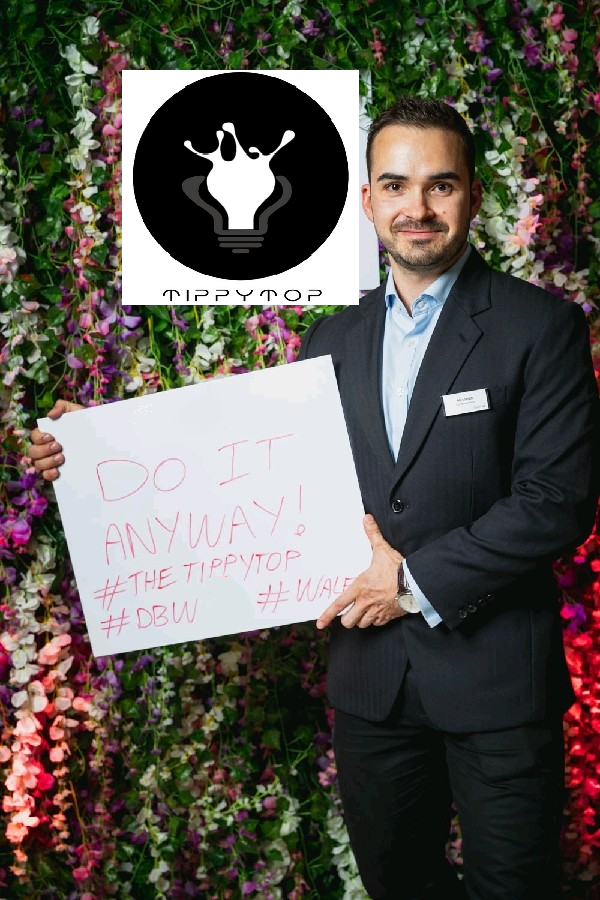
Most good company ideas are stolen. Success is all about timing and execution. How do I know this? Because I’ve spoken to countless wealthy entrepreneurs who were not ashamed to admit it. I might have also done it myself once before. It worked brilliantly except for the tiny yet pivotal fact that the product didn’t lend itself to repeat business...
Case in point, before Facebook there was Ringo. It launched a full 8 months earlier, in June 2003. After only 3 months it had 200,000 users with a weekly growth rate of 10%.
Case in point, before Facebook there was Ringo. It launched a full 8 months earlier, in June 2003. After only 3 months it had 200,000 users with a weekly growth rate of 10%.
Similarly before Google there was a plethora of search engines. I remember looking for web pages using 4-5 search engines because they all found different results. They included Altavista and my favourite in 1997, WebFerret, which worked better than all of them. So how did Google become ‘the internet’ as many non-techy savvy people would say? Timing and execution.
Now before you get all paranoid about sharing your pitch deck with VCs, realise that the main reason why early-stage investors part with their cash is because of your team’s ability to deliver on the business plan. If you are concerned about your execution skills then you probably shouldn’t be asking for money...
So what’s the real problem with current thinking around entrepreneurship? Well, a large proportion of people and MBA graduates in particular have their hearts set on becoming entrepreneurs. What’s their thought process? Something along the lines of, ‘I need to create an disruptive app that makes x cheaper/better/faster.’ Unfortunately more often than not, they become entrepreneurs looking for problems rather than real problems that need entrepreneurs to solve them. This leads to the number one reason for start-ups failing: There is no market need. That’s a pretty harsh realisation 2 years down the line while you still have $200k student debt hanging over you.
So how do we combat this silliness and get you on the road to success? Simple:
Now before you get all paranoid about sharing your pitch deck with VCs, realise that the main reason why early-stage investors part with their cash is because of your team’s ability to deliver on the business plan. If you are concerned about your execution skills then you probably shouldn’t be asking for money...
So what’s the real problem with current thinking around entrepreneurship? Well, a large proportion of people and MBA graduates in particular have their hearts set on becoming entrepreneurs. What’s their thought process? Something along the lines of, ‘I need to create an disruptive app that makes x cheaper/better/faster.’ Unfortunately more often than not, they become entrepreneurs looking for problems rather than real problems that need entrepreneurs to solve them. This leads to the number one reason for start-ups failing: There is no market need. That’s a pretty harsh realisation 2 years down the line while you still have $200k student debt hanging over you.
So how do we combat this silliness and get you on the road to success? Simple:
Photo by Marc Schulte on Unsplash
Option 1: Find A Crystal Ball
How do you find out what the next big thing is going to be? One easy way is to look to more active start-up markets. If you’re in South Africa, look to the UK. If you’re in the UK, look to the US etc. Not only is this a good way to source ideas but it usually gives you a 24+ month head start.
Why? Well, if a start-up launches in the US, the market is so big that they can grow exponentially for a long while without switching continents. This provides a tremendous opportunity for UK entrepreneurs. Not only do you know the idea is pretty good, but also that there’s a natural timing barrier to entry. Most importantly you’ve got a very likely exit opportunity when they inevitably do decide to enter the UK.
I briefly worked with an entrepreneur who did exactly this and then retired in his mansion in Cape Town. He now does some Angel investing on the side to keep life interesting. How the other half live eh?! I digress.
Said UK entrepreneur publicly states that he followed a very structured process when evaluating the US start-ups. He and his co-founder selected something that was scalable, generated repeat business and was suitable to the UK market. Of course it was something that they could start and run themselves without hiring in too many other skill-sets.
A few years later, they had generated good traction and some scale. Their US counter part decided it was easier to buy them out than compete. Boom. Exit.
If you live in a hot start-up market like San Fran, Tel Aviv or Lisbon. Then find your own crystal ball. This could be speaking to futurists, scanning Google Trends, or looking to emerging countries for technologies that have leapfrogged the developed world just like Mpesa did in Kenya by pioneering mobile money.
To be clear, I’m not trying to kill innovation. I praise the likes of Elon Musk and Jack Ma who revolutionised numerous sectors. All I’m saying is that they are the outliers of entrepreneurship so don’t beat yourself up if you cannot emulate them.
Option 1: Find A Crystal Ball
How do you find out what the next big thing is going to be? One easy way is to look to more active start-up markets. If you’re in South Africa, look to the UK. If you’re in the UK, look to the US etc. Not only is this a good way to source ideas but it usually gives you a 24+ month head start.
Why? Well, if a start-up launches in the US, the market is so big that they can grow exponentially for a long while without switching continents. This provides a tremendous opportunity for UK entrepreneurs. Not only do you know the idea is pretty good, but also that there’s a natural timing barrier to entry. Most importantly you’ve got a very likely exit opportunity when they inevitably do decide to enter the UK.
I briefly worked with an entrepreneur who did exactly this and then retired in his mansion in Cape Town. He now does some Angel investing on the side to keep life interesting. How the other half live eh?! I digress.
Said UK entrepreneur publicly states that he followed a very structured process when evaluating the US start-ups. He and his co-founder selected something that was scalable, generated repeat business and was suitable to the UK market. Of course it was something that they could start and run themselves without hiring in too many other skill-sets.
A few years later, they had generated good traction and some scale. Their US counter part decided it was easier to buy them out than compete. Boom. Exit.
If you live in a hot start-up market like San Fran, Tel Aviv or Lisbon. Then find your own crystal ball. This could be speaking to futurists, scanning Google Trends, or looking to emerging countries for technologies that have leapfrogged the developed world just like Mpesa did in Kenya by pioneering mobile money.
To be clear, I’m not trying to kill innovation. I praise the likes of Elon Musk and Jack Ma who revolutionised numerous sectors. All I’m saying is that they are the outliers of entrepreneurship so don’t beat yourself up if you cannot emulate them.
Photo by Aisha Askhadova on Unsplash
Option 2: Look on Your Doorstep and Execute Like a Ninja
Execution risk is why investors yawn when entrepreneurs talk about ‘first mover advantage.’ There literally is no benefit to being first. You make all the business model mistakes, you build the wrong product and you blow your marketing budget trying to find your route to market.
Enter the ‘fast follower strategy’ or as I like to refer to it as the “we’ll take it from here, thanks” strategy. You don’t need to look very far to find these businesses, you probably already know of one or two that seem like good ideas but the founders are making a hash of it.
Now don’t be foolish and copy a bad idea like I did back in 2011. Rigorously evaluate the idea the same way an investor would. Make sure it’s worth all the effort. We made some money and did learn tons about business but I wish could reflect on that while driving around in a Porsche, not a VW.
I will insert a caveat here that once you’re out of the starting blocks, you need to innovate to stay ahead of the curve. You’ll also need to switch focus and ruthlessly pursue your company’s purpose. Continuing to focus on the competition in this phase will likely lead to failure.
Also be careful of making the common mistake of thinking you’ll be better because you’re smarter and more hungry. It rarely works out. What you need is a clear source of competitive advantage. If it’s an online business, perhaps you have better experience, a co-founder who is an excellent developer and/or superior UI/UX skills. Be clear on why you will win the race.
The great news about this strategy is that you can feed off the marketing spend of your competitor. They will be actively educating customers and thus growing your market for you. Then it’s just a case of brand awareness and offering a better product/service. This is one of the reasons why experienced entrepreneurs say that competition is good.
In my example, our competitor did wonders for us. They burnt thousands on print advertising and when people searched their website on Google, guess who’s website popped up in poll position thanks to Google Adwords. Our competitive advantage was understanding digital marketing back in 2011 when very few people did.
Unfortunately our competitor’s business failed because of their poor execution and the lack of repeat purchase business model. The consequent lack of overall marketing spend negatively impact on our sales. We still managed to keep going for 9 years, constantly dodging the grim reaper by doing things like:
1. Creating our own brand and manufacturing in China which increased the GP margin from 25% to 75%.
2. Adding new product lines aimed at increasing basket sizes, boosting margins and encouraging repeat purchases.
3. Designing new super premium products with high revenue and even higher margins.
4. Using a content-led strategy so that we could turn down PPC advertising. Blogs and Youtube were powerful allies.
Unfortunately we were operating in a dwindling economy and so ultimately the lack of repeat purchases reduced sales to the point where its now become a lifestyle business at best. The business model was flawed from the outset. A good business lesson but certainly one I could have learned vicariously.
Right now, this applies to everyone jumping on the Theragun (massage device) knock-off drop-shipping idea. You might make some money in the short-term and learn a thing or two about business but trust me, you're wasting your time.
Conclusion
Now that you know it's OK to 'borrow' other people's ideas, you can spend the majority of your time evaluating other start-up ideas rather than trying to dream up your own one. Whether you find the idea from your crystal ball or on your doorstep, please make sure the business model is a winner.
In case you're still wondering whether its unethical, think about this: You are unlikely to be more creative than the hundreds of thousands of entrepreneurs who are similarly looking for the next Uber or Instagram. Don’t try out innovate them, just do it sooner or better. As I said at the start, success is just about timing and execution.
What are your views?
Alex @ The Tippy Top Blog
Option 2: Look on Your Doorstep and Execute Like a Ninja
Execution risk is why investors yawn when entrepreneurs talk about ‘first mover advantage.’ There literally is no benefit to being first. You make all the business model mistakes, you build the wrong product and you blow your marketing budget trying to find your route to market.
Enter the ‘fast follower strategy’ or as I like to refer to it as the “we’ll take it from here, thanks” strategy. You don’t need to look very far to find these businesses, you probably already know of one or two that seem like good ideas but the founders are making a hash of it.
Now don’t be foolish and copy a bad idea like I did back in 2011. Rigorously evaluate the idea the same way an investor would. Make sure it’s worth all the effort. We made some money and did learn tons about business but I wish could reflect on that while driving around in a Porsche, not a VW.
I will insert a caveat here that once you’re out of the starting blocks, you need to innovate to stay ahead of the curve. You’ll also need to switch focus and ruthlessly pursue your company’s purpose. Continuing to focus on the competition in this phase will likely lead to failure.
Also be careful of making the common mistake of thinking you’ll be better because you’re smarter and more hungry. It rarely works out. What you need is a clear source of competitive advantage. If it’s an online business, perhaps you have better experience, a co-founder who is an excellent developer and/or superior UI/UX skills. Be clear on why you will win the race.
The great news about this strategy is that you can feed off the marketing spend of your competitor. They will be actively educating customers and thus growing your market for you. Then it’s just a case of brand awareness and offering a better product/service. This is one of the reasons why experienced entrepreneurs say that competition is good.
In my example, our competitor did wonders for us. They burnt thousands on print advertising and when people searched their website on Google, guess who’s website popped up in poll position thanks to Google Adwords. Our competitive advantage was understanding digital marketing back in 2011 when very few people did.
Unfortunately our competitor’s business failed because of their poor execution and the lack of repeat purchase business model. The consequent lack of overall marketing spend negatively impact on our sales. We still managed to keep going for 9 years, constantly dodging the grim reaper by doing things like:
1. Creating our own brand and manufacturing in China which increased the GP margin from 25% to 75%.
2. Adding new product lines aimed at increasing basket sizes, boosting margins and encouraging repeat purchases.
3. Designing new super premium products with high revenue and even higher margins.
4. Using a content-led strategy so that we could turn down PPC advertising. Blogs and Youtube were powerful allies.
Unfortunately we were operating in a dwindling economy and so ultimately the lack of repeat purchases reduced sales to the point where its now become a lifestyle business at best. The business model was flawed from the outset. A good business lesson but certainly one I could have learned vicariously.
Right now, this applies to everyone jumping on the Theragun (massage device) knock-off drop-shipping idea. You might make some money in the short-term and learn a thing or two about business but trust me, you're wasting your time.
Conclusion
Now that you know it's OK to 'borrow' other people's ideas, you can spend the majority of your time evaluating other start-up ideas rather than trying to dream up your own one. Whether you find the idea from your crystal ball or on your doorstep, please make sure the business model is a winner.
In case you're still wondering whether its unethical, think about this: You are unlikely to be more creative than the hundreds of thousands of entrepreneurs who are similarly looking for the next Uber or Instagram. Don’t try out innovate them, just do it sooner or better. As I said at the start, success is just about timing and execution.
What are your views?
Alex @ The Tippy Top Blog





 RSS Feed
RSS Feed